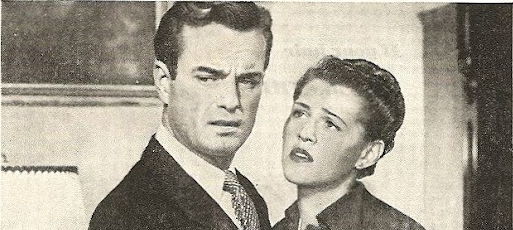How and when did your spouse become uncooperative? They certainly weren’t this uncooperative when you first married them, or you’d have never agreed to tie the knot. What happened, and what can be done about it?
Here is a plausible explanation. When you were first married, things went well because you felt love for each other; love was the defining characteristic of the relationship. When issues did arise, you were willing to give each other the benefit of the doubt. But then, as weeks stretched to months and months to years, a curious but not unusual phenomenon began to unfold: each of you began to say and do things that were experienced by the other as being hurtful.
I’m not necessarily talking about intentionally hurtful, major incidents, such as committing adultery or gambling away the grocery money, though of course these things can and do occur. I’m talking about minor, unintentionally hurtful incidents, such as not calling when you are going to be late, failing to remember to pick up milk on your way home, or eating the last cookie out of the cookie jar without replacing it. These things sound silly, right? They sound like such minor occurrences that they ought not merit any attention.
Herein lies the rub. That they are such minor infractions, we consider them not worth caring about. And we are likely to view anybody who does care about them as touchy, spoiled or thin-skinned. And thus a fatal virus is spawned: a minor infraction combined with a lack of remorse. Over time, as these incidents accumulate and go unaddressed, they form a film that coats everything in the relationship. Because they are minor, they go largely unnoticed; when they are noticed, they usually result in a flare-up of emotion where one party is considered touchy and the other inconsiderate.
See our So I Married Someone Uncooperative workbook offer below!
This situation promotes feelings of bitterness and resentment, and soon these feelings, not love, become the defining characteristics of the relationship. Like Louis Pasteur in the mid-nineteenth century, who could have imagined such a little thing could have such a major impact? Each spouse begins to pull back from the other. The little niceties that used to occur become less frequent. Signs of affection and regard disappear. Things grow colder in the bedroom. Arguments flare up more frequently, and are rarely resolved. Long, dark silences emerge, and each spouse begins taking on a more and more separate lifestyle. Cooperation becomes a thing of the past.
So what can be done about this sad state of affairs? First, it is important to realize that both sides have been hurt and that each side considers itself the offended party. And each side has its own list of charges to justify that determination.
Now is a good time to recall that we are not in a court of law here; no judge and jury is going to hear the evidence and declare one party wrong and the other right. No matter how justified you are in maintaining your claims, you are going to have to be willing to give them up if you want a happy marriage. “Being right” is the booby prize. Divorce courts are full of people who are right. You can be right or you can have a happy marriage; you can’t have both.
Pride becomes the real problem here. It is very difficult for any of us to admit how much we have been hurt by someone we love and thought loved us. Repeatedly hurt, intentionally hurt, cruelly hurt; a very difficult place inside ourselves to look at, accept and heal. It awakens wounds from the past. That’s where pride enters in: pride saves us from having to acknowledge how hurt, humiliated and ashamed we feel inside. Even if we allow pride to dominate and wind up in a divorce court, that hurt is going to remain inside us, like a cancer, until we open up to it and heal it.
Sometimes the hurt is such that we may require professional help and support for a time, until we are able to learn to tolerate it. Whether or not that is the case, the time will come when we realize we don’t want to continue living our lives like this anymore; we want to take action, to do something about it. Many people, having reached this conclusion, begin thinking of divorce; while that is always an option, I encourage people to try to salvage their marriage if they can. If nothing else, you will learn a great deal about yourself in the process, that will help prepare you for life in the future, wherever that may be.
The good news (you were hoping there’d be some good news, no?) is that your spouse is as sick and tired of the status quo as you are and may well be ready to negotiate. Remember the love you once felt for them and from them? Well, it hasn’t gone away, it’s only been covered over by the film of bitterness and resentment I mentioned earlier. Not to minimize that film – it’s both thick and sticky – but the love you remember remains there, underneath it.
You begin to dissolve this film by the conscious application of honesty, love and, above all, vulnerability. You can begin by asking your spouse to sit down with you; sometimes a quiet public place is best suited to promote civility and decorum. You can say something like: Look, our life together has become fairly miserable; I don’t like it this way and imagine you don’t either. I want to see if we can make things better, and I believe we can do so only if we leave blaming each other behind. So, without falling into the rut of continuously blaming each other, what do you think we can do to improve things between us?
Anticipate that your spouse may have a poor reaction to this kind of overture. Remember, you’ve been giving this plea thought for quite some time; for them, it’s coming like a bolt from the blue. So don’t be too ambitious; ask them to give what you’ve said some thought and ask if they’d be willing to revisit the subject again in a few days.
While it is not your role to play therapist, you are assuming a leadership role in the relationship, at least for the moment. I think this a legitimate state of affairs, particularly if your spouse is willing to wear the same mantle farther down the road.
While this experiment is serious, it need not be tedious; see if together you can say and do the things you said and did when you were first in love. Reminisce. Recall old times, old friends, old places. So doing will help recall the faith and love you have for each other that has inadvertently become displaced over time. The love, trust and warmth is still there, and, if you are willing to forgo the dubious glee of holding on to bitterness and resentment, you both can tap into and employ it once again.
For as little as $9.95 you can purchase an easy to read self-guided workbook designed to provide the tools and skills you need to understand and cope with your spouse’s uncooperative outlook on life.
A lack of cooperation in your spouse can be the cause of a great deal of friction and stress in the marriage. Most people posses only limited skills in dealing with a lack of cooperation in their spouse and you have come to the end of yours. What is needed is not the number of a good divorce lawyer but an infusion of new skills and approaches to successfully manage the problem. If you are concerned about the lack of cooperation in your marriage and have ever wished there were a fresh, sure-fire approach available to cope with them, So I Married Someone Uncooperative is for you.
Not a quick fix, secret remedy or a magic bullet, So I Married Someone Uncooperative offers practical hands-on advice, insights and techniques that improve the health of your marriage. Unaddressed marital stress can lead to serious emotional and physical health problems such as depression, loss of appetite, backaches, ulcers, drug and alcohol abuse and more. Affecting both your personal and professional life, it is sure to have a negative impact on you.
In So I Married Someone Uncooperative you will learn how to:
Break the vicious cycle repetitive arguments
Understand the root cause of your spouse’s lack of cooperation
Address the irrational aspects of their lack of cooperation
Develop a more effective approach to their lack of cooperation
Harness the healing power of love
Become a positive force in your marriage
See FAQs
This booklet is written by William R. Colagrande, MS a NY State licensed psychotherapist with over thirty years experience. So I Married Someone Uncooperative features an easy to follow fictional narrative to illustrate and personalize the course material, insightful questions to reflect upon and supplemental readings geared to help you improve the love, warmth and closeness you feel in your marriage.
Why continue to struggle with the harmful effects of your spouse’s lack of cooperation when the tools and support you need are only a click away?
Read Excerpts from the Workbook
Learn to adopt a beneficial lifestyle now!
This workbook is available in two versions, Electronic or Hard Copy.
In the Electronic version, you receive a PDF file of the workbook for $9.95.
In the Hard Copy version, you receive your copy of the workbook in the mail: $12.95 plus $2.99 postage and handling.
We’re so certain you’ll be satisfied with this workbook, we offer a complete money-back guarantee!
Order your copy Now!
Contact us now for additional information!


